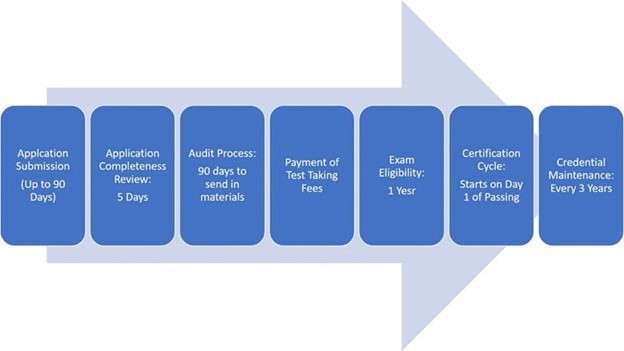The advantages of PMP certification
Project Management professionals have seen a massive surge in demand and importance. As PMI.org reports, “research indicates that employers will need to fill nearly 2.2 million new project-oriented roles each year through 2027. This means skilled project managers are in high demand.” Adding a PMP credential to a portfolio can help a jobseeker get an advantage in the job market, and surely increase chances of being hired.

Earn your PMP, guaranteed!
Enroll in a PMP Boot Camp and earn one of the industry’s most respected certifications and enjoy exam insurance.
PMI’s Project Management Professional certification
The Project Management Institute (PMI) adheres to a system of principles and standards that are defined by the Project Management Body of Knowledge (PMBOK) that accurately describes the function of the professional’s practice and related tasks. The Project Management Professional (PMP) certification administered by PMI is designed to prove not only the testers’ competence in the theory but also the possession of the soft skills necessary to succeed in the job. It highlights the qualities required to lead teams involved in the project, as well as the ability to align the outcomes with the organizational strategies of the company.
The exam tests on three domains that constitute the knowledge areas a project management professional needs to address: people, process and business environment. Certified professionals can prove they have the technical skills and the interpersonal competencies associated with being an effective project manager professional, that unique blend of both hard and soft skills that include not only the mastery of project planning but also the leadership and highly-developed communication skills needed to convey effectively, in both technical and non-technical terms, to the satisfaction of all stakeholders.
About the PMP exam
The exam launched on January 2, 2021, and was developed by subject matter experts from leading organizations who ensure the test content is consistent with how project management knowledge is described in the PMBOK Guide. This ensures that the PMP examination content is a current, valid and appropriate measure of professional’s knowledge in project management.
A candidate is assessed for his or her competence “to apply project management concepts and experience to potential on-the-job situations through a series of scenario-based questions.”
The new exam comprises 180 questions (the previous exam was 200), a combination of multiple-choice, multiple responses, matching, hotspot and limited fill-in-the-blank. Testers have 230 minutes to complete it.
So, what’s on the test? It now focuses on three new domains: people, emphasizing the skills and activities associated with effectively leading a project team; process, reinforcing the technical aspects of managing a project and business environment, highlighting the connection between projects and organization strategy.
More info on the domains is available in the 2021 PMP Exam Content Outline as well as in the PMP exam updates. Testers who need some preparation material for the exam can consider many online PMP study resources including self-study books published by registered education providers and courses from reputable training organizations.
It’s now possible to take the PMP certification test online from home or office. Once payment is received ($405 is the PMI member fee and $555 for a non-member), the candidate will receive an email notification with a PMI eligibility ID to be utilized for scheduling a test appointment. This is done via the candidates’ online Pearson VUE account. Here’s how it’s done: log in to PMI.org and navigate to “Review Application Status” under myPMI. Click "Schedule Exam."
On the day and time of their online proctor test, candidates will need to be ready with a computer with a webcam and microphone, a reliable internet connection and a quiet space where they can spend a few uninterrupted hours taking the exam. Note that online proctored testing (via OnVUE) is not permitted in Cuba, Iran, Sudan, North Korea and mainland China. In these countries, testers will need to take the paper-based exams available four times a year at an authorized center.
Here’s the entire PMP examination process: [CLICK IMAGE TO ENLARGE]
Eligibility and prerequisites for the PMP credential
Eligible candidates must have a four-year degree, 36 months of experience leading projects and 35 hours of project management education/training or CAPM certification. The alternative is a high school diploma or an associate’s degree (or global equivalent), 60 months of experience leading projects and 35 hours of project management education/training or CAPM certification.
Advantages of the PMP certification
A PMP certification can open the door to a rewarding career. According to PMI, a gap analysis commissioned to Anderson Economic Group (AEG) in 2017 showed how in 11 countries and seven project-oriented sectors, through 2027, the project management-oriented labor force is expected to grow by 33 percent, resulting in approximately 22 million new jobs and the need for 88 million professionals.
Obtaining the PMP certification can add great value to a resume and carry weight to give candidates an edge when applying for a job over non-certified candidates. The certification is globally recognized and therefore is valued by most employers looking for talents in the field.
Those who receive the PMP credential can prove to any future employer that they have a very strong skill set and are ready to lead a team. Attaining the PMP designation, and retaining it, represents a commitment to expanding their professional capabilities in the field and shows the possession of that unique blend of hard and soft skills that good project managers must have whatever their role and the industry they work in.
The certification can also enhance the credibility of professionals with employers and clients. Being PMP certified means not only having passed a difficult test and respecting stringent certification and recertification requirements, but it also means having to abide by an established code of ethics and professional conduct.
Being PMP certified can also aid career growth. By validating their experience as project managers in a formal way and ensuring professionals keep updated on the newest trends in the field through continuing certification requirements (CCR), employees can aspire to senior positions.
A PMP certification can also help increase salary. The average salary for certification holders is excellent at $107,520, as per PayScale. According to the 2020 IT Skills and Salary Report by Global Knowledge, the PMP certification is one of the top-paying certifications in North America with a reported average salary of $136,236 for certification holders. It is also the highest-paying certification in Latin America, in the top three in the Asia-Pacific area and the top six worldwide with a reported salary of $110,646.
Pairing this project management credential with other popular certifications can also have a significant impact on salaries. According to the Global Knowledge report, IT professionals with a CompTIA A+ certification see a 36% salary increase when they add PMP with the average salary going from $83,948 to $114,351.
Another advantage of a PMP certification is the networking opportunities it opens thanks to local chapters disseminated in all major cities throughout the world, members meetings, forums and conferences tailored to the acquisitions of professional development units (PDUs) needed to fulfill CCR for keeping the certification active. Sharing info with like-minded professionals can give access to inside knowledge of future vacancies, best practices, mentorship opportunities and newer trends in the field.

Earn your PMP, guaranteed!
Enroll in a PMP Boot Camp and earn one of the industry’s most respected certifications and enjoy exam insurance.
The PMP certification can help your career flourish
As more organizations use project-based methods to get work done, the demand for PMPs with the right knowledge, abilities and interpersonal skills to motivate and direct team members on various tasks and milestones continues to grow. PMPs are good at seeing the "big picture.” They oversee the entire project lifecycle, plan and manage phases, follow-through by inspiring and leading a team to support process-based workflow governed by rules or procedures. They are essential to ensure project plans move forward and stay on track by focusing on the people, processes and business environment related to the overall project figuring out the requirements to accomplish this task.
The PMP credential ensures and proves that the professional can do just that in support of any organization requirements with the proper experience, education, skill, and competency required to bring projects to successful completion, on time and in (or under) budget.
Sources:
PMP Certification, Project Management Institute, Inc.
PMP Exam Updates, Project Management Institute, Inc.
PMP Exam Preparation, Project Management Institute, Inc.
PMP Certification Handbook, Project Management Institute, Inc.
Advantages of PMP certification, Daily News Hungary
5 Amazing Benefits Of PMP Certification, KnowledgeHut
2020 IT Skills and Salary Report, Global Knowledge
Content validation for the PMP certification examination, Project Management Institute, Inc.
Bureau of Labor Statistics recognizes importance of project managers, Federal Times
Earning Power: Project Management Salary Survey…, Project Management Institute, Inc.
The Project Manager of the Future: Developing digital-age…, Project Management Institute, Inc.







